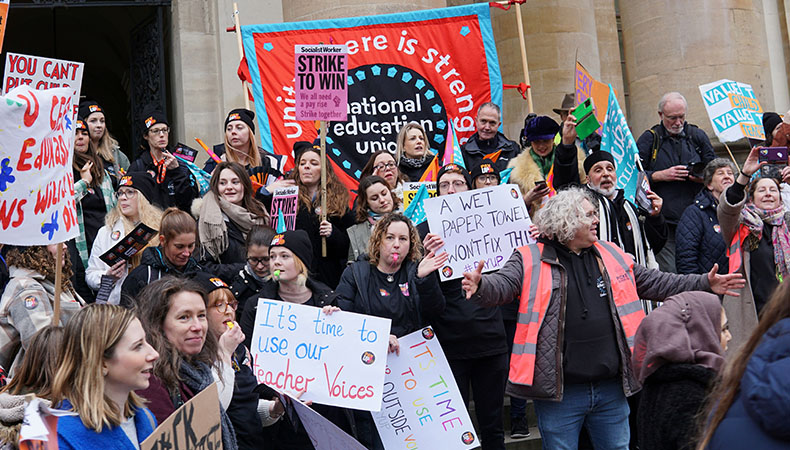Expert view: What public sector pay rises could mean for the labour market
Public sector workers are set to see big pay rises this year.
Most NHS workers, police officers, teachers, civil servants, and members of the armed forces will receive above-inflation wage rises, ranging between 4.75% and 6%. Junior doctors, who have staged a recent series of strikes over pay, will get a 22.3% salary rise spread over two years.
While the cost of this increase is estimated at £9.4 billion pounds, what benefits can taxpayers expect in return?
One is fewer days lost to industrial action. In the past year alone there have been 1.5m working days lost to strikes.
Another is that higher pay can help improve recruitment and retention, such as fewer NHS nurses being tempted by jobs overseas, or more people applying to become teachers.
What knock-on effect could public sector pay rises have?
They could have a significant effect in local government, where workers will see these increases as a benchmark.
Local authorities in England, Wales and Northern Ireland have offered their 1.4 million council and school staff outside of London a pay rise, worth either £1,290 or 2.5%, whichever is higher.
By contrast Unite, Unison, and the GMB unions that represent these workers have made a pay claim of either £3,000 or 10%, whichever is higher. So far, two of these three unions have rejected the employers’ offer and are considering strike action.
Other employers in the voluntary and private sectors, which compete directly with public sector for staff, such as private hospitals, social care charities, private schools, and security firms, will also feel the impact.
They will need to increase their pay rates to remain competitive so to attract staff, and to hang on to their existing people. Those that can only afford a smaller increase will need to compensate by looking at improvements in the benefits package.
For those employers that do not directly compete for talent with the public sector, there could be an indirect consequence.
Some workers may ask those in HR why they are not also getting similarly sized pay rises. However, as these employers are operating in a different labour market, the competitive pressures to match the pay rises will be slight.
Will public sector pay deals improve recruitment and retention, or productivity?
As reward professionals, we know that pay is just one part (albeit a significant part) of the employee experience.
How line managers recruit, manage, develop and recognise their people can have just as big an impact on employee commitment and job satisfaction as reward.
Similarly, how employers design jobs and organise work, as well as the tools that they give their people to do their jobs, can all impact on their workers’ ability to perform.
That is why the government’s recent announcement of AI investment in the public sector is a welcome start.
While higher pay is important, it is not the only thing needed to create a more effective public sector.
Other areas of people management must also be improved. Otherwise, taxpayers will wonder what they are getting in return for this extra spending.
The CIPD’s latest Labour Market Outlook report looks at UK employers’ pay growth expectations.







